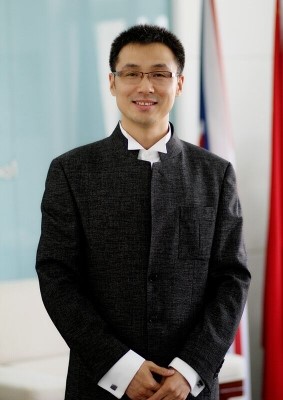

Keynote Speaker

Prof. Chunhui Huo
Asia Australia Business College, China
Research Area: Strategic Management; Innovation Management; Marketing
Title: The Transformation of National Patents for High-Technology Exports: Moderating Effects of National Cultures
Abstract:National culture as an informal institution influences the national absorptive capacity (NAC) measured in patents per capita in the upstream and entrepreneurial activity in the downstream. Does national culture moderate the link between the NAC and high-technology exports? We explored this question in a comprehensive study design. Based on a panel of 101 countries and 21 years, first, we assessed the direct effect of NAC on the high-technology exports in the baseline hypothesis. Then we analysed the moderating role of national culture between the country’s NAC and high-technology exports. The results show several insights from the comparison between the literature and our evidence. (i) We proposed that power distance negatively moderates the patent and high-tech exports; the result shows a positive correlation of the interaction. (ii) We proposed that individualist culture positively moderates the patent and high-technology export; the result shows a positive correlation of the interaction. (iii) We proposed that the high masculinity has no moderating effects; the result shows a positive interaction effect. (iv) We proposed that the uncertainty avoidance negatively moderates the link between the NAC and high-technology exports; the results show negative and significant moderation without the introduction of long-term orientation, but it shows non-significant after the introduction of the long-term orientation. Lastly, (v) we proposed that long-term orientation positively moderates the link between the NAC and high-technology exports; the result is positive and significant without uncertainty avoidance, and it is non-significant with uncertainty avoidance in the analysis. Uncertainty avoidance and long-term orientation neutralise each other’s effects. Based on these insights, we contribute to the literature in three ways. First, address the issue of high-technology exports in the international business at the national level, and we link it to the vertical transformation of national science in patents per capita. Second, we contribute to the institutional theory that encompasses informal norms (culture) and formal rules (policy) in the flow of NAC to commercial performance. Thirdly, we make several policy related suggestions.

Prof. Gordana Kierans
Shenzhen Technology University, China
Research Area: Circular Economy, Leadership
Title:The Circular Economy: Four Elements of Success
Abstract: Ever since the Industrial Revolution, our system of production has been a linear economy that has evolved into a “take-make-use-and-dispose” structure powered almost exclusively by fossil fuels. This system has been like a machine that has grown bigger and bigger all the while getting faster and more efficient in order to produce more and more.
However, our Earth’s resources have become scarcer and consequently more expensive to extract in recent years. Indeed, alarmingly, many precious metals are running dangerously low and our waste landfills have become full. In addition, renewable resources like water, air, forests and fish stocks are polluted and increasingly more stressed.
It has thus become obvious that to meet the demands of everybody on this planet new industrial principles of production and consumption are urgently required. The circular economy actually separates economic growth and development apart from the consumption of limited resources, creating a new industrial economy.
However, for the circular economy to succeed as the new business reality free of waste, four factors play a crucial role. In her talk, Prof. Kierans will explain which factors these are and why all four of them are required for the successful transition to the circular future.

Prof. Yanchun Zou
Guangzhou University, China
Title:Environmentally Specific Transformational Leadership and Team Pro-environmental Behaviors: The Roles of Pro-environmental Goal Clarity, Pro-environmental Harmonious Passion, and Power Distance
Abstract: Does environmentally specific transformational leadership promote team pro-environmental behaviors? If so, why and when? Using the cognitive-affective processing system framework, we explore the idea that environmentally specific transformational leadership facilitates team pro-environmental behaviors via team pro-environmental goal clarity and team pro-environmental harmonious passion separately and that such indirect relationships are stronger when the team power distance is high. We used three waves of data from 113 teams in six Chinese manufacturing organizations to test our theoretical predictions. The results of regression analyses show that environmentally specific transformational leadership is positively related to team pro-environmental behaviors; this relationship is parallel mediated by team pro-environmental goal clarity and team pro-environmental harmonious passion. Furthermore, the team power distance strengthens the above parallel mediation effects such that in teams with high levels of power distance, environmentally specific transformational leadership strongly provokes team members’ pro-environmental goal clarity, pro-environmental harmonious passion and subsequent pro-environmental behaviors. These findings suggest that environmentally specific transformational leadership is an effective approach for organizations to improve their teams’ pro-environmental behaviors, particularly in the context of strong power distance.
